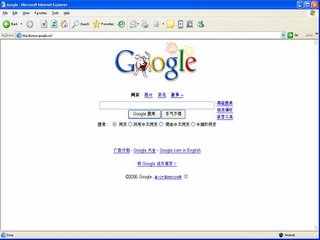Political compromising

In a recent article I expressed concern regarding the digital divide. It is all very well British Telecommunications plc suggesting that the coverage for Broadband in the UK is well into the late ninety percent but few are considering that adult literacy and access to understand the basic aspect of computing is still lacking.
The need for access to information using the Internet as the so called ‘online library for all’ is now being challenged by another issue. The issue of freedom of information, i.e: who has access? It is a bit like being charged to walk on any part of the Earth. Similar to the issue regarding access to fresh water for all being a fundamental human right. Does every living person on this planet have a right to water for free? Yes, but millions die of food and water starvation every day. Unfortunately much depends on the political system that one lives with. In the West we consider ourselves as lucky. For example, the welfare state exists.
In terms of the Internet, unfortunately commercialism has taken over. On my laptop I’m asked for my credit card details if I’m visiting a coffee shop with wireless Internet access. Suddenly my access to the world is constrainted!
In this weeks Financial Times and a variety of media outlets we all sat back and absorbed the news that Google will be launching its highly successful set of service in China (.cn). Let us also consider the following statement that accompanied this announcement from Google: 'In order to operate from China, we have removed some content from the search results available on Google.cn in response to local law, regulation or policy'. Andrew McLaughlin, Google's senior policy counsel, said in a statement. ‘While removing search results is inconsistent with Google's mission, providing no information (or a heavily degraded user experience that amounts to no information) is more inconsistent with our mission.’ Maybe Google is attempting to strike a balance between the freedom of information it champions and the censorship demanded by Beijing, which controls access to China's 111 million Internet users (NB Compare that to China's total population!). Or, should we consider this compromise as bowing to a communist dictate!
The company added that at least for now, it will stay away from e-mail and blogging (weblogging or a personal journal is known as blogging) in China, which have been the source of recent controversies after Beijing demanded information on an e-mail user from Yahoo, and Microsoft pulled down a politically sensitive posting from its China-based blog service. Google also said it will also stay away from chat rooms, another popular form of expression over the Internet.
Reporters Without Borders… (Reporters Without Borders, or RWB (French: Reporters sans frontières, Spanish: Reporters Sin Fronteras, or RSF) is an international non-governmental organization interested in issues relating to freedom of the press. Although small in size, RWB has been recognized for the frequent issuing of reports and press releases on press freedoms. RWB draws its inspiration from Article 19 of the 1948 Universal Declaration of Human Rights which states that everyone has ‘the right to freedom of opinion and expression’ and also the right to ‘seek, receive and impar’ information and ideas. This has been restated by several charters and declarations around the world covering Africa and the Americas. In Europe this right is included in the 1950 European Convention for the Protection of Human Rights and Fundamental Freedoms. RWB published its highly acclaimed Handbook for Bloggers and Cyber-Dissidents in September 2005)…joined others in asking how Google could stand up for US users' freedoms while controlling what Chinese users can search for. Interestingly, some have questioned RSF/RWB's impartiality due to a significant amount of funding coming directly or indirectly from US and French government bodies.
Google’s decision represents another compromise by the West for China. It is unfortunate that the world sees that it is OK to trade and play (Olympics 2008) with China, whist they can continue with their policies. Unfortunately, I guess money talks.
Read more!





